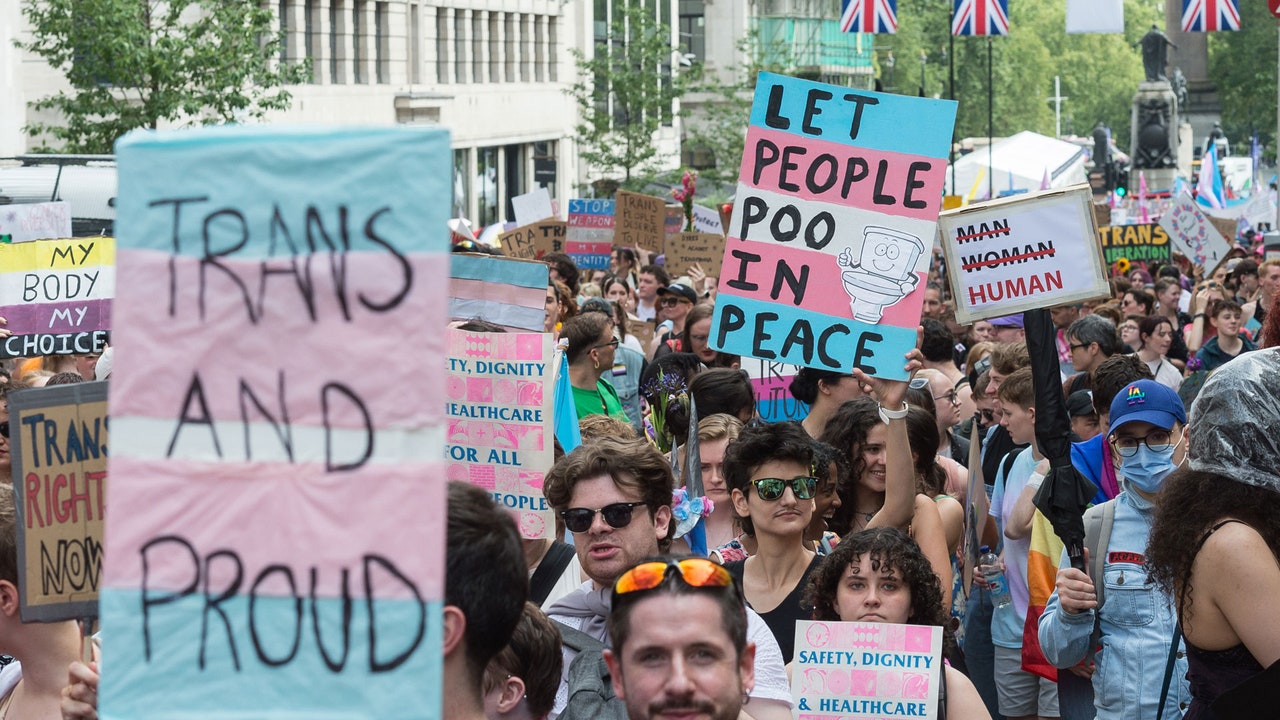
Utah just became the first state to advance anti-trans legislation this year, with the House of Representatives approving one of the most extreme bathroom bills to date.
On Friday, the Utah House voted 52-17 to advance House Bill 257 which would define sex (and related terms) across state law in a way that excludes trans people. According to the bill’s text, HB 257 would legally define a female as “an individual whose biological reproductive system is of the general type that functions in a way that could produce ova,” and a male as “an individual whose biological reproductive system is of the general type that functions to fertilize the ova of a female.”
The bill also criminalizes trans people for bathroom use in publicly owned buildings. If it passes, any trans person who uses the bathroom that aligns with their gender could be charged with voyeurism and/or criminal trespass, offenses that carry a penalty of up to six months in jail and a $1,000 fine, according to TruthOut.
The bill makes exceptions for trans people to access the facilities that align with their gender if they have legally amended the sex on their birth certificate and undergone “a primary sex characteristic surgical procedure,” per the text of the proposed legislation. The bill itself even anticipates that cis people who are gender-nonconforming (or perceived as such) will also be impacted, in which case they will be “allowed” to use their unamended birth certificate as “defense against an allegation.”
As the Salt Lake Tribune explained, it is because HB 257 amends many parts of the state’s code, it may take time to understand the full extent of its consequences. As a result, if passed, the bill could dictate, for example, whether and how trans people would be able to access state-funded domestic violence shelters and rape crisis centers (which are typically sex-segregated facilities).
The bill would also place burdensome restrictions on trans students who would be required, along with their parents, to develop a “privacy plan” with their school in order to arrange access to unisex or single-occupant bathrooms. If they can’t access either, the student can be granted access to a sex-designated space “through staggered scheduling or another policy provision that provides for temporary private access.”
The bill also allows the state’s attorney general to impose a fine of up to $10,000 per day on local governments that don’t enforce the bill), per Law Dork.
Every Democratic representative in the Utah House opposed the legislation, along with three Republicans. HB 257 now heads to the Utah Senate, which is controlled by Republicans. According to The Hill, if the bill becomes law it will make Utah the third state to restrict trans people from using the bathroom in buildings other than schools, alongside Florida and North Dakota. However, HB 257 is far more wide-ranging than either of those other laws; Florida’s only applies to government-owned buildings, and North Dakota’s applies to correctional facilities and dorms.



